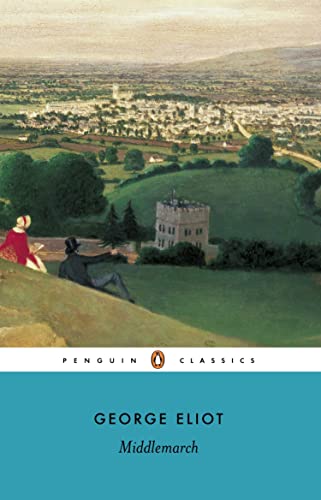Although the novel does contain some digressions and commentary, as George Eliot was prone to include in her novels, it is not a stiff and slow reading experience most of the time. Besides her dry humor, she also wrote some rather suspenseful chapters, which induced me to read deep into the night sans sleep, turning the pages with a mix of anticipation and apprehension, eager to discover the fate of the characters involved.
One early example is Fred Vincy's odyssey to pay off his debt, from his scheme of flipping horses (as in "flipping houses") to his emotional rollercoaster. Even though his failure was not difficult to foresee, the suspense, for me, lies in how he would confess his failures to the beloved Garth family, and what would come of it. Through this plot arc, we see Fred as the hapless and impulsive guy who is not too smart, but he does not lie, neither to others nor himself. In a sense, Fred is a danger to himself and others (more the former than the latter), and his journey into emotional maturity reminds me of, of all things, a Robert B. Parker novel early in the Spenser series (yes, I know, comparing Middlemarch to pulp fiction) titled "Early Autumn." In that novel, Spenser saves a boy abused by his parents by teaching him to build a house. Similarly, Fred's central relationship is less with Mary and more with Caleb Garth. Mr. Garth also taught Fred how to build a house, well OK, figuratively.
Two other suspenseful chapters were both scenes of death. The first involves Mary Garth at the deathbed of Fred's uncle Featherstone, who may or may not have left a large amount of money to Fred. I did guess the eventual outcome on the inheritance question, but the process is plenty eerie, and the depiction of his last internal conflict rivals the best gothic novels. The second is Dorothea's viewpoint of her husband's last days. Mr. Casaubon has been stewing in the fear and jealousy of a younger man's attention to the oblivious Dorothea for weeks and months. Feeling his end is near, he wants Dorothea to make an oath sight-unseen. Dorothea says I don't promise anything without first knowing what it is. The hilarity is that he wants her to promise never to marry Ladislaw after he is dead, and she thinks he wants her to write his magnum opus for him after he is dead. She spends all night dreading that she may be pressured into a tedious and meaningless labor, until they have that talk in the morning ... Ah the buildup is so good and delicious, and the resolution so unexpected, that I nearly laughed out loud.
Later in the book, there are multiple plotlines leading to multiple mini-climaxes, intricately woven and acutely described, with unexpected payoffs, each with subtle irony and wisdom upon reflection. Her skills are absolutely breathtaking. Sometimes I wish Eliot had written a few mysteries, if only the genre had existed in her time. I am certain she would have killed it.


No comments:
Post a Comment